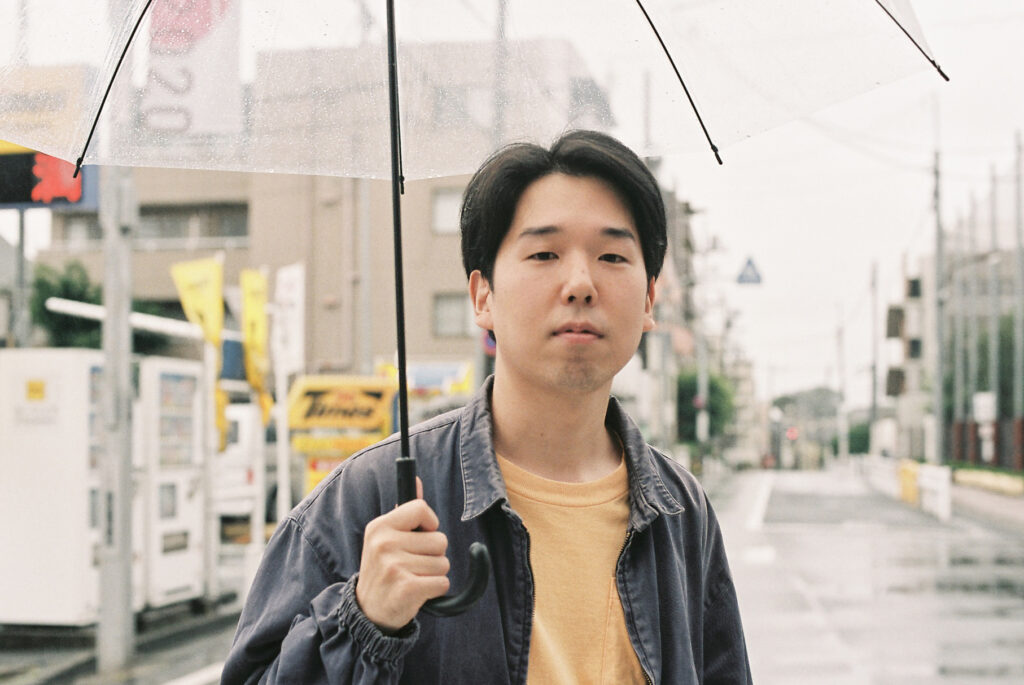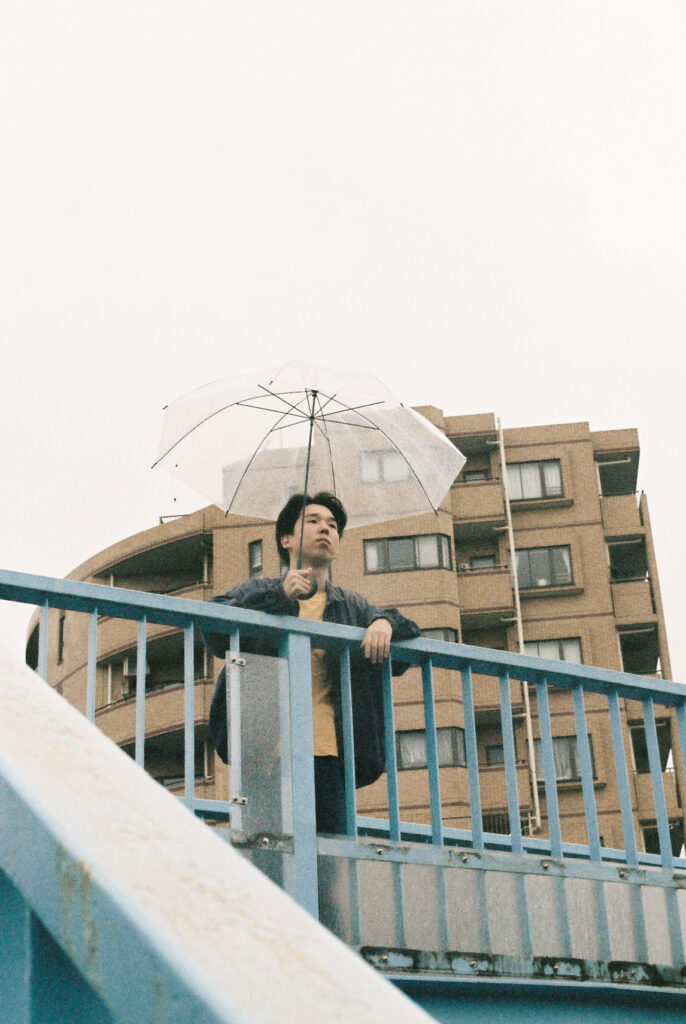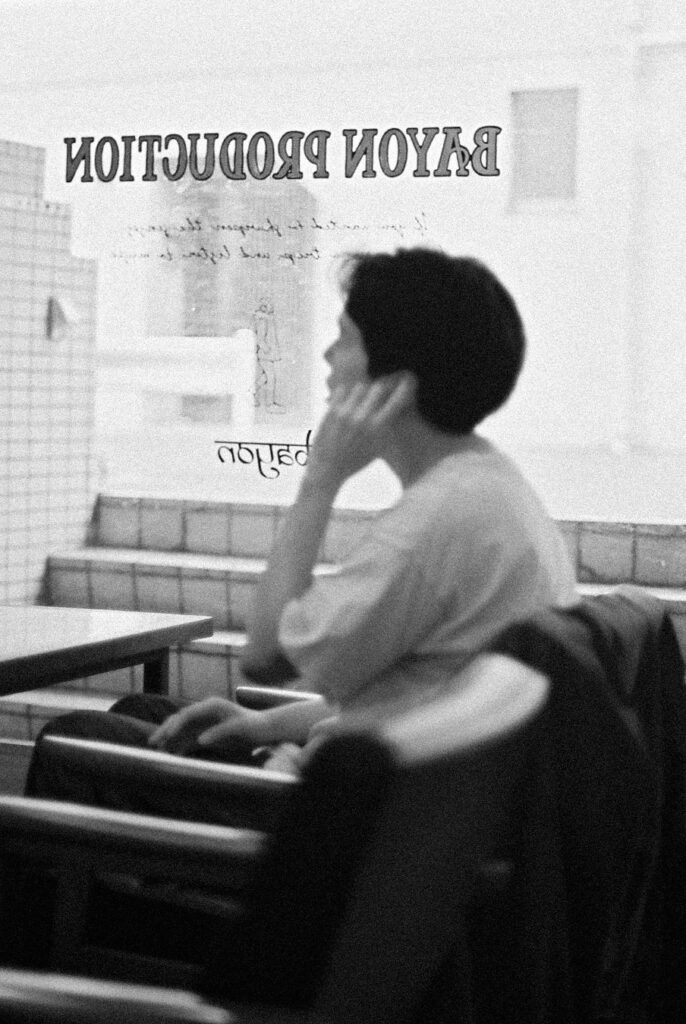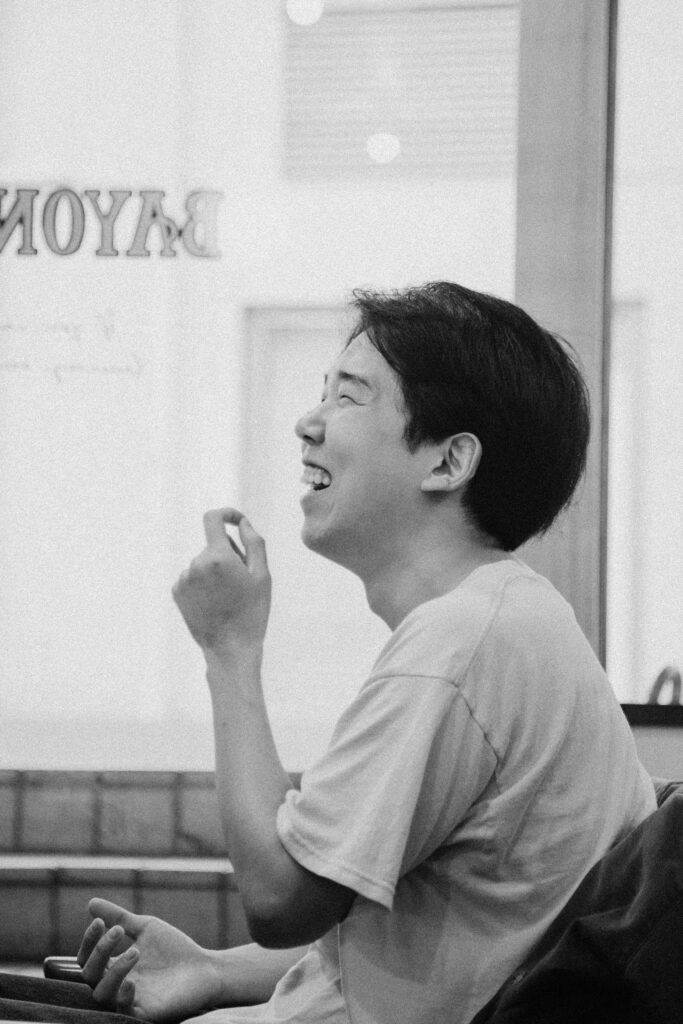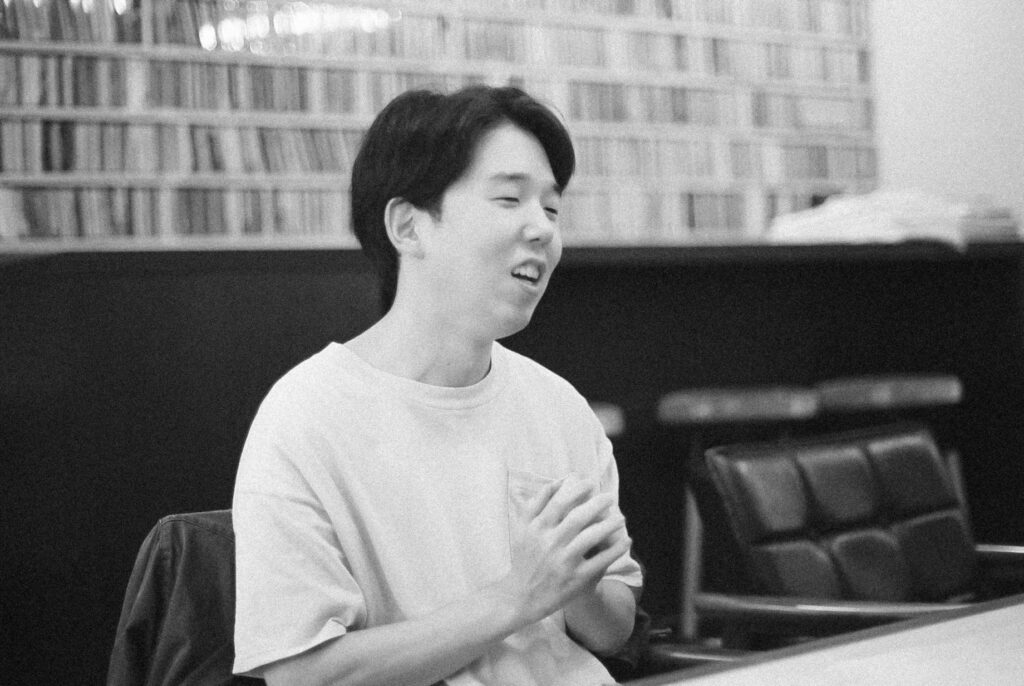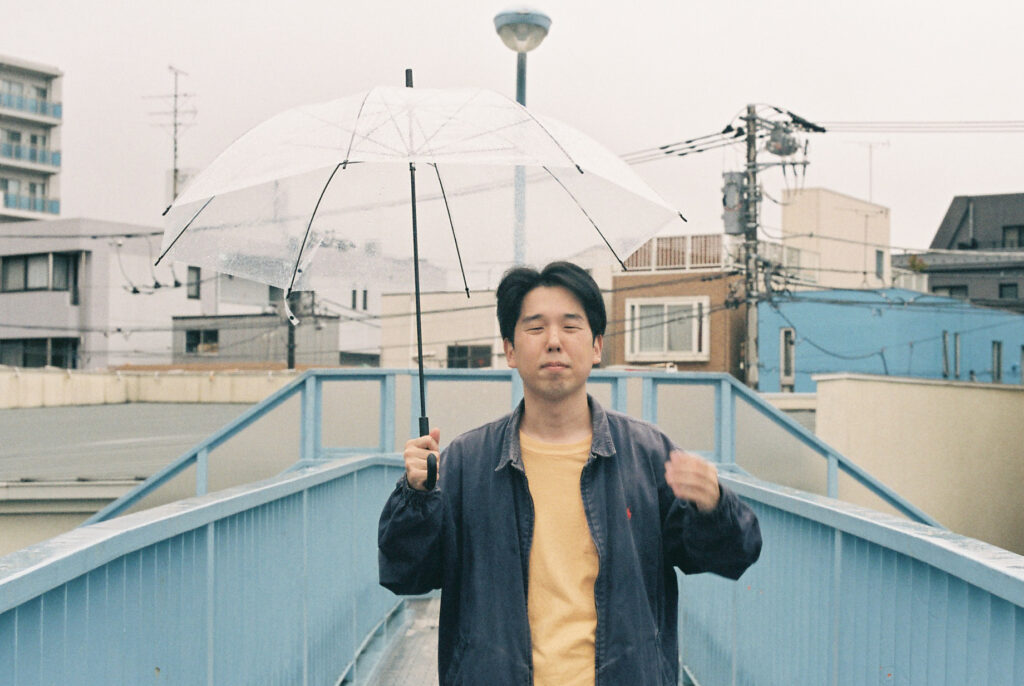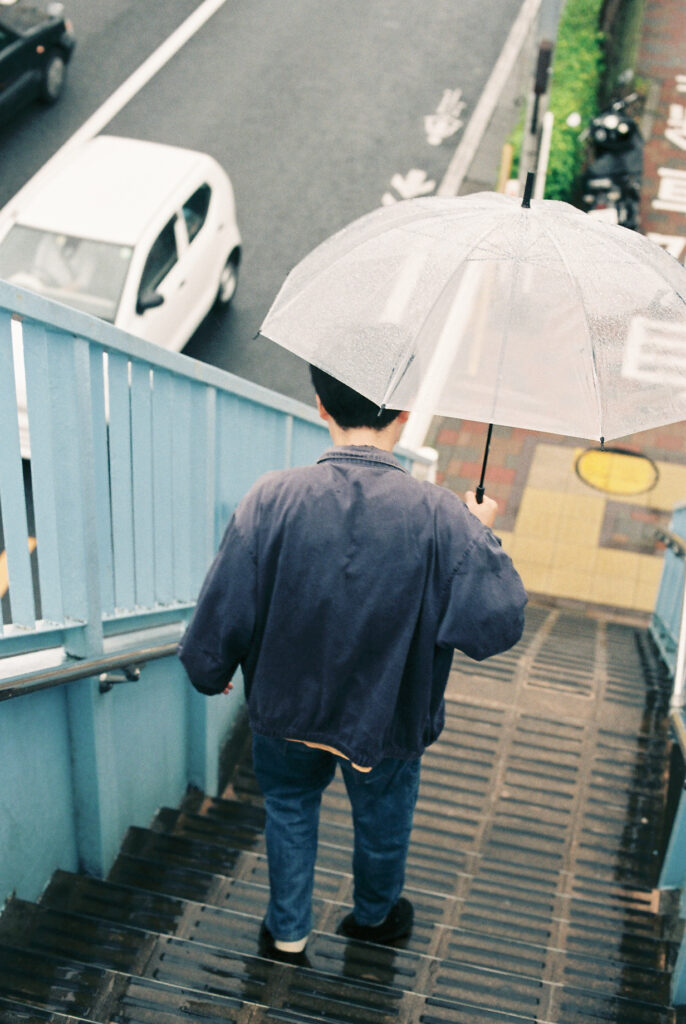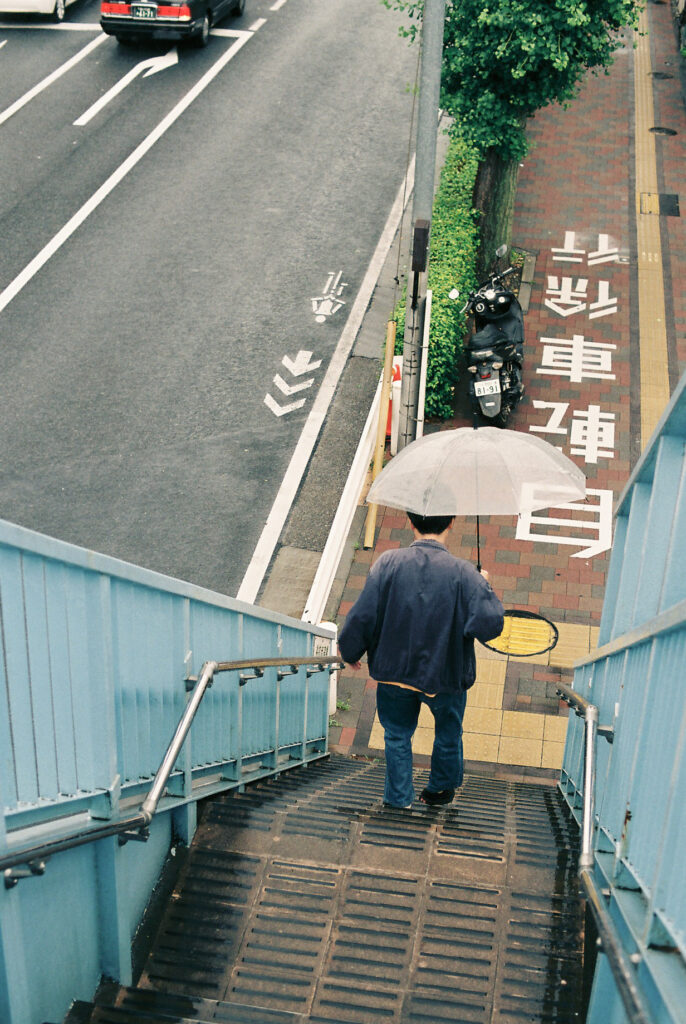The songs on Fantasia are warm and simple, with a rich depth and resonance. The first solo album by Yuma Abe of Never Young Beach, Fantasia features a personal sound unlike anything from his band. It captures the hearts of listeners—slowly, and deeply. Devendra Banhart, a close friend of Abe’s, joined in on guitar, and Haruomi Hosono, one of his greatest influences, mixed the album’s tracks. Regarding this masterpiece, Abe says while laughing, “If anything, I’d rather you not give it too much praise!”
From “music as a job” to “music as an extension of daily life”
――When did you get the idea to make a solo album?
Yuma Abe: Maybe around two years ago. After we finished Never Young Beach’s 4th album, STORY, I guess there was part of me that felt suffocated. Like I had to make a certain kind of music as Never Young Beach, or if I liked a certain kind of music, I’d feel bad if I was at all imposing on my bandmates. I used to be able to be more selfish about making the kind of music that I liked. My bandmates tell me not to worry about that kind of thing. But after being in the band for five or six years, there are times when I feel a bit of pressure about various things. I started to have the vague thought that if I were solo, I could do whatever I wanted without worrying.
――So you felt a kind of external pressure, and at the same time, you were going through an internal change where you felt like you wanted to be more true to your feelings.
Yuma: That was a big part of it. So when I started making music by myself, I didn’t feel at all like, “I want a lot of people to listen to this.” I felt like the act of singing to people itself was a bit forced. So I figured that it’d be nice if people could just listen like, “Oh, I didn’t know this sort of thing was out there.” That’s how it started.
――Ultimately, your first solo album, Fantasia, is quite a leap from your band’s sound.
Yuma: I had some time on my hands during the coronavirus, and at first, I thought I’d write some songs for the band. But I wondered what I could sing about with the band. This is something that I feel about the world as well—but I feel like there are too many optimistic songs. I feel like everything has become positive, like “Do your best!” Of course, that’s fine, but I’m tired of it, so I wanted to make something that was more like a soliloquy, something that only my friends would listen to.
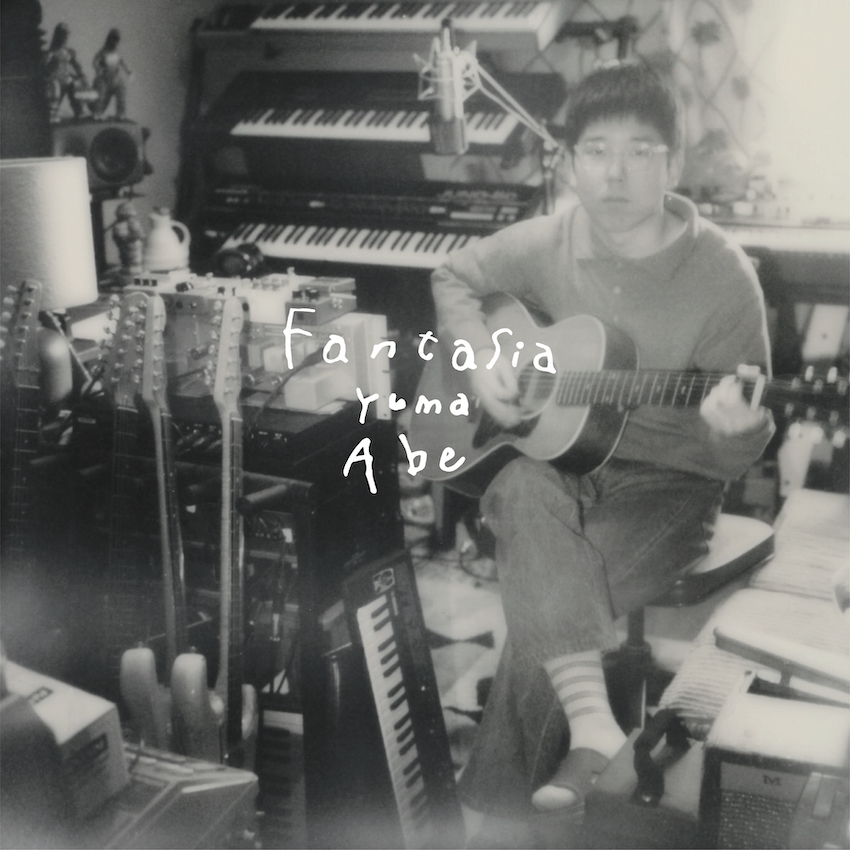
――So you imagine this album to be something personal, like a “soliloquy” or something “only your friends would listen to.”
Yuma: It’s a bit introverted—or I guess, it’s not as open to the outside world as our band is. I can’t even imagine doing this with the same energy as our band, like, “Woo!” (laughs) I became interested in all kinds of things, and that’s reflected in the album. I also wanted to do this like I was just having fun with friends, in a casual way that felt closer to everyday life like, “If you’re free, wanna play bass for me?” And that’s because I’ve been working with my bandmates for years now. Maybe it’s the difference in the sense of responsibility, but with my band, I say stuff like, “That’s no good” or “Let’s change that take.” With my friends, I can naturally just let things fly. (laughs) Even if the bass and drums are out of sync, I feel like that can be interesting.
――Were you trying to return to music as an extension of your daily life as opposed to music as your job?
Yuma: Yeah, that’s it. Just like the listeners, if I thought a song was cool, I’d listen to it over and over again and make my own song, and I’d just create based on that feeling. It was purely fresh and fun.
Don’t force things and resist being “easy to understand”
――I listened to your first song, and it immediately won me over from the moment I heard it. One of the major changes in this album is the vocal style. The songs feel like you’re just plopping your voice on top of the melody or singing without exerting all your energy.
Yuma: Actually, there were songs that I properly recorded and corrected the pitch on, but I felt it wasn’t right for this album, so I re-recorded almost all the vocals at home. I didn’t have enough power at home, so there are a lot of hissing noises on the tracks. But that’s on a lot of the old music that I love, so I didn’t want to worry about it too much. Someone said that although there’s a tendency to eliminate noise from music these days, there’s no such thing as silence in any environment. It’s true that even in everyday life, we can hear the rustling sound of the wind and leaves. So when I heard what that person said, I thought, “That’s right.” But I was born in 1990 and grew up in an era where it was normal to eliminate those sounds, so the task of leaving them in was really scary. Even now, I have this weird feeling where I’m wondering if it’s actually okay.
――But maybe because of that, I can hear the atmosphere in the sound. In the song and the performance.
Yuma: I did want to record the atmosphere as much as possible. So I felt like something would be destroyed if I raised my voice too much. I love Devendra Banhart, and Shintaro Sakamoto’s solo work, and of course, Haruomi Hosono…I feel like their music has an atmosphere. I think that’s quite hard to do with the band…I do think it’s a positive thing to make music where you belt out singing about things that anyone can relate to. But when that goes too far, it becomes an exchange of emotions rather than music. When someone knocks their emotions up against yours, you want to respond, right? So I think it was like returning that to a neutral state, creating some distance, and just having a chat. I wanted that distance to come out in the sound. Recently, I’ve been reading a lot of Takeshi Yoro’s books, and he says that people try to get rid of things without meaning. For example, we use herbicides to get rid of weeds. But I was talking about how much richness meaningless things can bring about—and this might be different from what Yoro wanted to say—but overall, I made the album with a feeling of: I don’t have to know what it means, and I’ll just include that stuff for now.
――So without judging whether there’s meaning or thinking about it with your head, you just made it with your senses.
Yuma: I thought I shouldn’t think about it. With the guitar that Devendra contributed to this album, if I thought about whether he’d be able to play the same phrase again, I don’t think he’s calculated it like that. It’s intuition and an accumulation [of experience] from his everyday life. I can’t do that sort of thing without intentionally aiming for it, so I still have a long way to go.
――When I listened to this album, I noticed all the songs didn’t feel forceful. Even when you look at the world, for example, there’s a system where so-called influencers blatantly show their influence, and no one can escape their power. But Fantasia resists power. The performance is really simple, and the number of notes is thoroughly cut down.
Yuma: I want to cut down the number of notes in the future. I think I’ve come to appreciate the merit of that. Recently, I’ve started listening to ambient music, like Mother Earth’s Plantasia by Mort Garson. Even though it [ambient music] doesn’t include personal thoughts, or words to convey them directly, somehow, they come across. I think it might be because they appeal to human imagination or other people’s feelings. Nowadays, everything gravitates towards being easy to understand. But I feel like when I was a kid, there was a little more fun in wanting to gravitate towards what you don’t know and research it. Today, people won’t look at something if it isn’t easy to understand, and it won’t become a hit unless it’s easy to understand to some extent. I think I have a longing for things that aren’t like that.
――That could be said of lyrics, too. Compared to your band, I feel like the songs have fewer words, and in turn, that makes them more abstract. On the other hand, some of the lyrics are very specific.
Yuma: With a band, especially if you consider live performances, I think that to some extent, it’s good to have lyrics that are relatable for everyone. But this time, I felt like it was fine if only I could understand the lyrics, or if I wanted to say something more directly. In the song, “Suteki na Bunka,” there are lyrics about how I was making mochi and I felt like, How did I even sing that? (laughs) If I sang about the same thing with the band, I feel like the audience might be confused. But with this, I felt like it was okay, and it was fun to be able to write like that, so I’d like to keep at it in the future.
――Does that mean you were prepared to leave it up to the listener?
Yuma: It might be more like “leaving it as is,” rather than “leaving it up to them.” (laughs) It’s like, I’m just going to make this and leave it here, and if anyone wants to eat it, they’re welcome to. If you aren’t interested, you don’t have to touch it at all. This might be idealistic, and it’s realistically close to impossible—but I want listeners to suddenly encounter my music when they’re not thinking about anything, without being exposed to social media or announcements. Wouldn’t that be the best? This is true of when you make plans too. Aren’t there times when you make plans to hang out with a friend, and then on the day of, you feel like it’s sort of a pain? It’s the most fun when you’re like, “Are you free? Let’s hang out!” I was hoping to bring out that feeling of unexpected fun in my music.
Collaborating naturally with Devendra Banhart and Haruomi Hosono
――Maybe it’s difficult these days to have unexpected encounters with music. It’d be incredible if this album could break through that barrier. I’m curious to see how people who haven’t had that kind of encounter before react when they stumble upon this album.
Yuma: I’m curious about it, but it’s fine if people say it isn’t for them, and I feel like, Isn’t that kind of distance nice? (laughs) But one breakthrough I had as a result of making this album was that even though I started it without deciding anything, before I knew it, Devendra was playing guitar for me, and Hosono was mixing for me. I’ve made attempts to collaborate with Devendra previously through my staff, but it didn’t work out. And then it just somehow happened when I contacted him directly. So I realized that if I gravitate towards what I find fun, I may make mistakes, but it might just work itself out. I thought, so this is the “spontaneity” that Hosono is always talking about (laughs). There’s something carefree about the people I admire, including Hosono, and there are a lot of people who are like, “What? I’m not thinking of anything in particular.” I guess that must work better for them. This gave me a bit of confidence too, and making this album with that part of me was a moving experience—or I guess, I discovered something new about myself.
――Going forward, how do you think this solo work will be reflected in your band?
Yuma: Hm, that’s difficult. I’d already thought about doing something like this with the band, but trying probably made me tired. Like if I make a song with just synths, what will happen? Or if I think about the live performance, I want the song to have a bit more energy. Maybe it’s okay to have different styles in different places.
――Maybe you’ll have this kind of space in the future, different from the space you have with the band.
Yuma: Yeah. With this album, I realized how much the sound changes when you play with different people. If I were able to make music in different forms depending on the situation, I might be able to keep making music for the rest of my life. Music is probably more fun in the long run if you have somewhere to “escape” to, don’t you think?
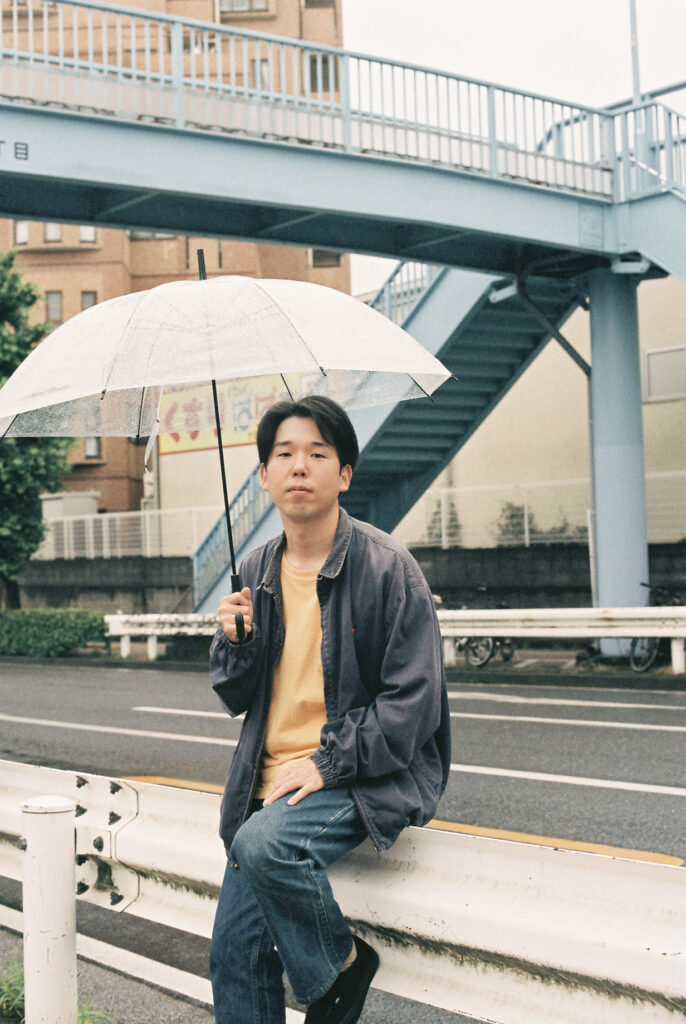
Yuma Abe
Yuma Abe was born on September 4th, 1990 in Tokyo. In 2014, he started his career as the vocalist and guitarist of Never Young Beach, combining native Japanese sounds with influences from American indie music. He writes all the band’s songs. Yuma has also performed at many music festivals in Japan such as Fuji Rock Festival and Summer Sonic, and with international artists such as Devendra Banhart, The Growlers, Mild High Club, and HYUKOH. He has also gone overseas to tour and perform at festivals across Asia, including Shanghai, Beijing, Chengdu, Shenzhen, Hangzhou, Taipei, Seoul, and Bangkok. He has written songs and sang for Tomita Lab and Neconemuru, as well as participated in a cover song for an NTT Communications promotional video. Since around 2017, he has had conversations and been on the radio with Haruomi Hosono, one of his greatest influences. He also performed at “Yellow Magic Show 3,” an event commemorating Hosono’s 50-year career. In addition, he wrote a commentary for Hosono’s 2019 book, Tomatteita Tokei Ga Mata Ugoki Hajimeta.
Instagram : @_yuma_abe/
Thaian Records : https://thaianrecords.co
Photography Mikako Kozai
Translation Aya Apton

